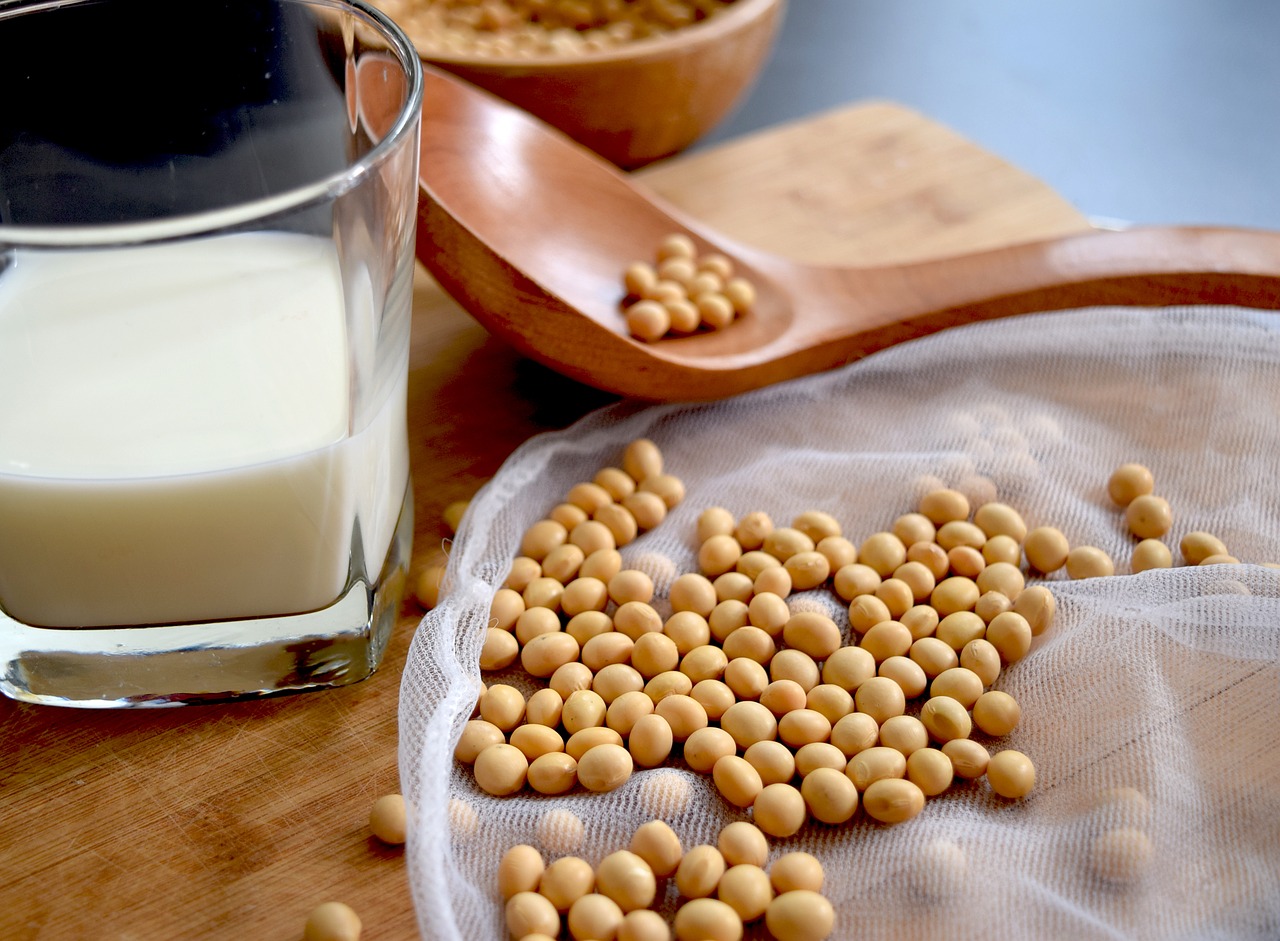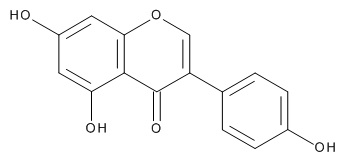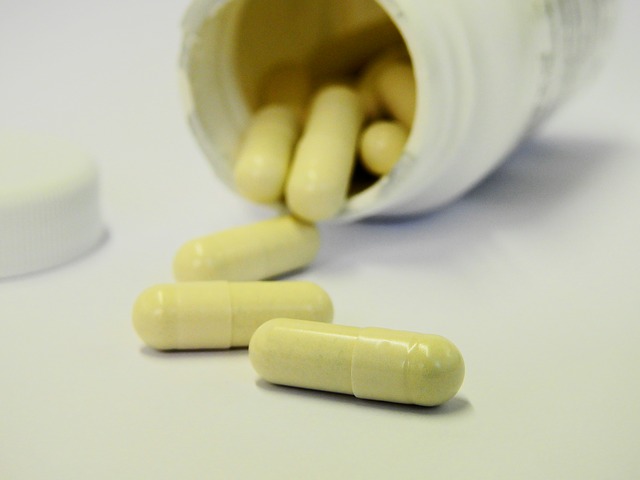Food Supplements #4: Soy isoflavones - A natural saviour for menopausal women?
Manufacturers promote isoflavones as supplements for „natural“ treatment of menopausal symptoms and for prevention of breast cancer. A scientific analysis.
Food Supplements.
Some are beneficial, many are just scam. This is my fourth post on food supplements.
You may also like:
#1: Should you take DHA during pregnancy?
#2: Collagen – Does it make you beautiful and tough?
#3: Silica and its wonderful effects on health – legendary or just a legend?

Soy, the primary human source of isoflavones. Pic from pixabay
Intro
I wasn‘t sure in which of my post series isoflavones would fit best… supplements or tox-blog? But as I didn’t post on supplements for some time, it seems right to do it like this. This said, I think you might already guess my angle on isoflavone supplementation... Spoilered my audience again, dammit!
Let’s just start from the beginning and pretend this didn’t happen, ok?
Isoflavones
The chemical compounds called isoflavones are part of the class of flavonoids, which are part of the class of polyphenols, which are famous as THE compounds that no proclaimed “superfood” should lack. They are well-described anti-oxidant constituents of plant-based food, found in loads of different fruits and vegetables and are linked with positive health effects, in particular with cancer prevention ("chemoprevention").
The isoflavone subgroup is found in different plants, but the major source of human intake is soy, which is – as a fermented paste, the tofu - a traditional food component in Asia, but has also a growing fan base in Western countries. The signature compound of soy isoflavones is called genistein, minor compounds include daidzein and glycitein. All those, as many other polyphenols, were described as anti-oxidative agents and linked with chemopreventive activity. But their bioactivity doesn’t stop there: genistein also acts a phytoestrogen.

The chemical structure of genistein. Note that several hydroxy-groups are attached to an aromatic ring system, which defines a polyphenol, and the typical flavonoid structure. And chemistry hates you too, by the way.
Now what is this? "Phyto" is greek for plant, plant-derived. "Estrogen" (more correctly “17β-estradiol”) is a female sex hormone. So a phytoestrogen is a plant chemical that is able to act similar as the human hormone estradiol (“estrogenic”).
It means that our genistein is able to bind to human estrogen receptors (ERs), and thus triggers the same effects (mostly cell growth and differentiation) as estradiol in cells that carry those ERs, which are predominantly found in female sex organs like breasts, ovaries etc.
Menopause
When a woman enters menopause, her body stops producing estradiol. This is causing all the symptoms like hot flushes, sleeplessness, vaginal dryness, etc. etc.* Now of course, taking artificial estradiol - the so-called “hormone replacement therapy” (HRT) - can relieve women of those symptoms, but it is coming with some extra risks, in particular an increased risk to get blood clots in legs and lungs, and an increased risk to develop uterus and breast cancer, as cancer cells in those organs often overexpress ERs and thus respond very sensitively to elevated estradiol levels. Thus, the maximum time advised to make a HRT is 5 years.
* I deleted the word "moodiness" from the symptoms because I fear the reaction of moody female readers.^^
Enter isoflavone supplementation
Now some entrepreneurs had the glorious idea to advertise isoflavones for a kind of “natural” hormone therapy. The reasoning behind is simple: genistein is a weaker estrogen than estradiol, and helps to lessen the symptoms of menopause to a weaker extent, but also the side effects should be less grave as well.
Most importantly from their point of view, isoflavones are natural food constituents, and thus, they are not at all regulated by law. This saves manufacturers from all those nasty duties with having to conduct clinical trials on the efficiency and safety of their product.
Also, customers are always afraid of what they perceive as “chemistry”, but rarely of what you can sell as “natural”.

This might or might not be a isoflavone supplement. Rather not, but it was really impossible to find liscense-free pics of something so specific. Anyhow, isoflavone pills should look similar, so let's just pretend... pic from pixabay, where else?
A whole industry has evolved around this idea, claiming that isoflavones help to reduce menopausal symptoms (which they arguably do), but also that they reduce breast, ovary and uterus cancer risks, and that they are completely safe to take.
And the latter two statements should be taken with a healthy bit of salt. Let’s take a closer look:
Do isoflavones reduce cancer risks?
This claim heavily relies on some epidemiologic studies that compared populations with high (usually from Asia) with low (Western) soy consumption, and found the former to have reduced rates of ovary, uterus and breast cancer. Of course, there’s a heavy bias in those studies: the comparison of quite distinct populations might lead to false-positive results due to genetic differences. Also, it’s hard to exclude the contribution of other life-style factors.
So animal studies were conducted too, and they seem to verify the results of epidemiologic studies: Rats that were put on an isoflavone-rich diet for their whole life were found to have reduced cancer risks.
Great, supplementation then!!!?
Not so fast. Because we have to look closer. I said “isoflavone-rich diet for their whole life”. This is not a realistic scenario for the average Western woman that doesn’t eat soy for 50 years and then starts to take high doses of isoflavones. So quite a few animal studies have addressed a more realistic situation, and found this:
- Rats and mice which were fed with soy from birth on - or even prenatally - developed less cancer. Probably the artificial estrogenic stimulus alters cells of sex tissues in a way that makes them less susceptible to estrogen, which reduces the cancer risk later on.
- But in rats who started to get the same dose of isoflavones in the adult age, the cancer risk was not decreased! A few studies even found a slight enhancement of breast cancer risks.
It seems that adults lost the capability to adapt to artificial estrogenic stimuli, and thus genistein and other isoflavones could promote cancer in the same way synthetic estradiol does, instead of preventing it.
But it even gets worse:
Are isoflavones completely safe to take?
If you eat soy, the concentration of genistein in your blood will reach low micromolar levels, it will have some effects, but it's not toxic. If you take concentrated supplements, you can end up with much higher concentrations of genistein in your blood.
And that is a potential problem, as at high concentrations, genistein is a known genotoxic agent - it inhibits topoisomerase enzymes*, which leads to DNA strand breaks, which in turn can lead to mutations - and in turn cause cancer.
Just to assume it is safe to take whatever amount of isoflavones just because they occur naturally is not very intelligent, but this is how the supplement industry sells its product. Dosis sola fazit venenum**, I can’t write this important sentence often enough.
*I’ve described this mechanism in an earlier blog
**Latin for: “Only the dose makes the poison”
Conclusion
Soy isoflavones in Asian diets might indeed reduce cancer risks, but they surely don’t do this trick when supplemented at an age of 50+. Quite the opposite, there are valid arguments why supplementation might increase the risk for developing cancer: the estrogenicity and the unnatural high dose of the compounds that you get when you take them as a supplement.
To sum it up, if your menopausal symptoms are so bad you feel the need to medicate, I really can’t see an advantage of genistein over estradiol. Quite the opposite, as there is much less research on its safety and dosing it correctly is much more difficult.
If you’re afraid of hormone drugs, you can try to eat more tofu. That might give you a nice placebo effect and at least won’t kill you.
Sources:
Review on genistein and cancer prevention (British Journal of Cancer)
Review on the genotoxicity of genistein
menopause.org
Disclaimer: In my blog, I'm stating my honest opinion as a researcher, not less and not more. Sometimes I make errors. Discuss and disagree with me - if you are bringing the better arguments, I might rethink.
2 things that I've heard, but am too lazy to do my own research about:
This claim heavily relies on some epidemiologic studies that compared populations with high (usually from Asia) with low (Western) soy consumption, and found the former to have reduced rates of ovary, uterus and breast cancer.These studies (among other things you mentioned) do not take into account, that those cultures traditionally eat fermented soy products. ( Not sure what that does to the phytohormones )
If it does work as an estrogen supplement, what does that do to a male body ?
I really appreciate your work to analyze and educate people regarding the "natural" supplements or supplements in general. I was always a little reserved about their claims, especially since they get to avoid doing any research.
In Romania you can basically say just almost anything on National Television about a supplement since nobody will ever fine you for this. I personally reported a lot of their claims but I never received any response for the National Audiovisual Council (the regulators).
50% of the people are taking energy supplements when there is no need usually. Also, most of the commercials on the TV (not that I own one) are related to supplements. Trust is very high in these companies and their products.
That's exactly the main problem in my opinion. If you want to develop a drug, the research requirements are crazy. But this is good for the safety. If you want to produce a supplement, there seem to be hardly any requirements at all.
This probably varies from jurisdiction to jurisdiction?
That might indeed vary from country to country, yes, but from what I know, the requirements are quite lax all around the globe.
In the EU, food supplements share the same regulations as regular food. A problem arises when there's no regulation for a compound in regular food - even if it's just because there is no realistic szenario where concentrations can be reached that are high enough for the compound to exert toxic effects. So even if that might happen with supplementation, the compound remains unregulated. That's exactly the case for isoflavones. So even as soy isoflavones are more or less marketed as a kind of natural drug, the are regulated (or rather not regulated) as a food compound.
In the US, consumer protection is usually weaker than in the EU, so I wouldn't expect much regulations on supplements either.
Hello @sco,
Thank you for delivering all this info in a most comprehensive, straight-forward way. This post is such an eye opener for me.
I did not know about this.
I better call my mother NOW!
Although, I suppose the most surprising thing for me it was learning about how supplementarion can actually increase the risk of cancer, when we resort to it to obtain precisely the oposite effect.
All the best to you 🌷
Hey Abigail, thanks a lot for your feedback, it's always important to me to see the reaction of non-molecular-biologist-people to my posts!
Maybe I have to better describe "not regulated at all" a bit more specific... of course they also have to abide to some laws: They are not to allowed produce supplements with ingredients that are proven toxins in the supplied concentrations.
What I meant is that in opposite to producers of pharmaceuticals, they do not have to prove that their products are safe. And it's a huge difference between having to prove your product is safe in order to sell it and being able to wait until someone else can prove it is not safe and only then being forced to withdraw the product.
What also happens quite frequently is that when indeed the harmfulness of a supplement or cosmetic (the same rules apply) is proven, manufactorers withdraw the product, change the formula just slightly, and bring it back onto the market. Then the whole game starts all over again, until years later, science catches up with that product as well. Then they again change the formula a little, ...
Being A SteemStem Member
Great analysis of the evidence/lack thereof for the health benefits of isoflavones. Also, your description of the pill image:
Perfectly describes how I feel about one or two images in every post I upload :D
Thanks! Yeah, those tricky bastard images! ;P
Always interesting and very educational to read and benefit from your expertise in food science. It is really an interesting field for which I do have way to little time to dive into more deeply on my own. Thus I am particularly thankful for your posts taking me there. :)
You're welcome ;-)
From the perspective of someone who cooks, I want to ask if you have any thoughts about the way soy is traditionally eaten and prepared - fermented - vs merely isolating a chemical component. Fermentation lowers phytic acid content and increases bioavailability - but then does that mean you're actually getting more of the isolated component in the fermented version, which means soy becomes even more harmful?
EDIT: Okay I should read the fine print AND the comment section before commenting.... :D
;-P
Nice write-up! I never bothered reading on the isoflavone miracle. Now I don't even have to :-) so many trashy claims out there...
The YouTube-University told me to be aware of soy products anyway:
yeah, but that's another load of BS worth adressing^^ A funny load of BS, of course. :P
It is Soya Indonesia